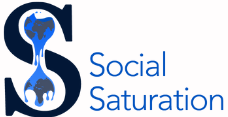
Bid Placement Costs and Their Impact on Digital Campaigns.
In the ever-evolving landscape of digital marketing, staying ahead of the curve is essential. One of the key strategies in the world of online advertising is keyword targeting, which serves as the backbone for pay-per-click (PPC) campaigns. Keywords are the gatekeepers to relevant traffic, conversions, and ultimately, success. However, what happens when these essential keywords suddenly shift during live campaigns? The answer lies in understanding the bid placement cost of misaligned keywords and their profound effects on digital campaigns.
The Shifting Landscape of Keywords
Keywords are the foundation of any successful digital marketing campaign. They connect your ads to the right audience, driving clicks, engagement, and conversions. But the world of keywords is dynamic. Search trends change, consumer behavior evolves, and your competition adapts.
Keyword shifts can happen for various reasons:
Seasonal Changes: Certain keywords may gain or lose relevance depending on the time of year. For example, “holiday gifts” may be hot in December but less so in July.
Market Dynamics: External factors such as economic conditions, global events, or industry trends can influence keyword popularity.
Competitive Landscape: As competitors adjust their strategies, they may bid on keywords previously unchallenged, driving up costs.
Algorithm Updates: Search engines like Google frequently update their algorithms, altering the ranking and relevance of keywords.
The Bid Placement Cost of Misaligned Keywords
When keywords shift during live campaigns, the bid placement cost can soar. Misaligned keywords can result in:
Increased CPC (Cost Per Click): When your chosen keywords lose relevance or become more competitive, you may need to bid higher to maintain visibility. This increased CPC can quickly drain your budget.
Lower Quality Score: Misaligned keywords can lead to lower ad relevance, which impacts your Quality Score on platforms like Google Ads. A lower Quality Score can lead to higher costs and lower ad positions.
Wasted Ad Spend: Bidding on keywords that no longer align with your campaign goals or audience can result in wasted ad spend. This is especially detrimental when budgets are tight.
The Domino Effect on Digital Campaigns
The bid placement cost of misaligned keywords is not just a financial concern; it can have a domino effect on your entire digital campaign:
Decreased ROI: Higher costs and wasted ad spend can significantly reduce the return on investment (ROI) of your campaign.
Reduced Ad Performance: As misaligned keywords affect ad relevance, your ad’s performance metrics, such as click-through rate (CTR) and conversion rate, may decline.
Missed Opportunities: Focusing on the wrong keywords can mean missed opportunities to connect with your target audience at crucial moments.
Navigating Keyword Shifts
To effectively navigate the challenges of keyword shifts during live campaigns, consider these strategies:
Regular Keyword Audits: Monitor your keywords and adjust your strategy as needed. Stay up-to-date with industry trends and competitor activities.
Adaptability: Be prepared to pivot quickly when keyword shifts occur. Adjust your bidding strategy, ad copy, and landing pages to align with the changing landscape.
Data-Driven Insights: Leverage data analytics to make informed decisions. Analyze performance metrics and adjust your campaign accordingly.
Negative Keywords: Use negative keywords to filter out irrelevant traffic and reduce costs.
Budget Flexibility: Have some flexibility in your budget to accommodate unexpected shifts without compromising your campaign’s overall performance.
5. More Capability to prognosticate the Future:
Predicting the future has always been a crapshoot for companies. That’s why marketing budgets are frequently so large Companies are hedging their bets and throwing a lot of coffers at the problem of figuring out what consumers want next. However, it can produce products that will be largely successful, and that means further plutocrat for everyone involved, If a company can directly prognosticate people’s wants and needs.
Artificial intelligence is taking over this part of prognosticating the future and doing a better job than humans. When companies use artificial intelligence, they can dissect massive quantities of data much briskly than anyone. Prophetic algorithms give marketers perceptivity into what’s coming next grounded on trends they see in the request. They can make informed opinions about their marketing juggernauts now that they ’ve been given a demitasse ball into the future.
6. Real- time Targeting:
Artificial intelligence is taking over this part of prognosticating the future and doing a better job than humans. When companies use artificial intelligence, they can dissect massive quantities of data much briskly than anyone. Prophetic algorithms give marketers perceptivity into what’s coming next grounded on trends they see in the request. They can make informed opinions about their marketing juggernauts now that they ’ve been given a demitasse ball into the future.
In conclusion, the bid placement cost of misaligned keywords during live campaigns can pose significant challenges to digital marketers. However, with a proactive approach and data-driven decision-making, these obstacles can be overcome. Keyword shifts are a natural part of the digital marketing landscape, and adapting to them is crucial for continued success in the ever-changing world of online advertising. Stay vigilant, stay flexible, and stay ahead of the game.


